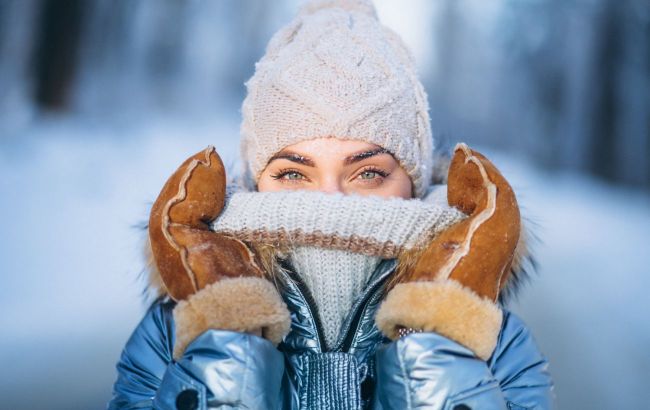Debunking 7 winter myths: Time for people to stop believing in them
 Illustrative photo (Photo: Freepik)
Illustrative photo (Photo: Freepik)
Despite the high level of access to information in the 21st century, people continue to believe in many myths, especially those related to health. You've probably heard before that it's not advisable to wash your head or take a shower before going outside in winter because it might make you sick.
RBC-Ukraine reports on the myths surrounding cold weather and health, according to USA Today.
Washing your head or taking a shower before going outside will make you sick
"The actual temperature in the air actually doesn't make us more or less likely to get sick directly. What tends to happen is we are more likely to be inside during the winter months when it's cold and we're therefore more likely to contract viral illnesses from the other folks that are around us," explains family doctor Robert Lichfield.
Bathing in winter increases the likelihood of catching a cold
"That is also a myth. In fact, you could argue that any good, healthy, safe physical activity actually makes us less likely to get sick because it actually stimulates our immune system. Our bodies were made to move and the more we move, typically in general, the more healthy we are. If we’re in tight quarters, like in a locker room or with other people, then that's how we sometimes could get sick or get a cold," says the doctor.
Bathing increases the risk of ear infection
"Swimming in general or any other water exposure is a known risk factor for external (outer) ear infections known as swimmer’s ear, but that risk is not increased in the winter. That risk is the same whether you're swimming in the winter or swimming in the summer. Cold exposure or swimming shouldn't increase the risk of a bacterial middle ear infection," says emergency care physician Terry Chiganos.
Alcohol warms you up
"Alcohol dulls some of our sensations and actually can be pretty dangerous in the wintertime. If we get too much to drink, it dulls our perception of cold and of pain. The alcohol dulls those sensations so we may end up staying out too long and we can get into a dangerous situation for hypothermia," warns Lichfield.
Sunscreen isn't necessary in winter
According to Chiganos, sunscreen is always necessary, regardless of the season. In winter, the impact of ultraviolet radiation may even intensify due to reflection from snow and ice. Skiers and hikers should take extra precautions because altitude and dry mountain air can increase UV levels. Also, the body tends to produce less melatonin in winter, which protects against UV rays.
Eating snow prevents dehydration
"This is true only in a few situations. It's better to avoid consuming snow if possible. The risk of eating snow lies in its ability to rapidly lower your body temperature. If someone is lost and there's no water source nearby, their biggest enemy in that situation would be the cold. By eating snow, they'd lose precious body heat," says Linder.
Exercising in cold weather is dangerous
"That's only true in a couple of situations. It’s best to avoid eating snow, if possible. The risk of eating the snow is that it will very quickly lower your core body temperature. It's not necessarily comfortable but you can go without water for several days and usually do OK as far as surviving," advises the family doctor.
The previous article discussed the types of tea that can reduce the risk of developing cancer.
This material is for informational purposes only and should not be used for medical diagnosis or self-treatment. Our goal is to provide readers with accurate information about symptoms, causes, and methods of detecting diseases. RBС-Ukraine is not responsible for any diagnoses that readers may make based on materials from the resource. We do not recommend self-treatment and advise consulting a doctor in case of any health concerns.

